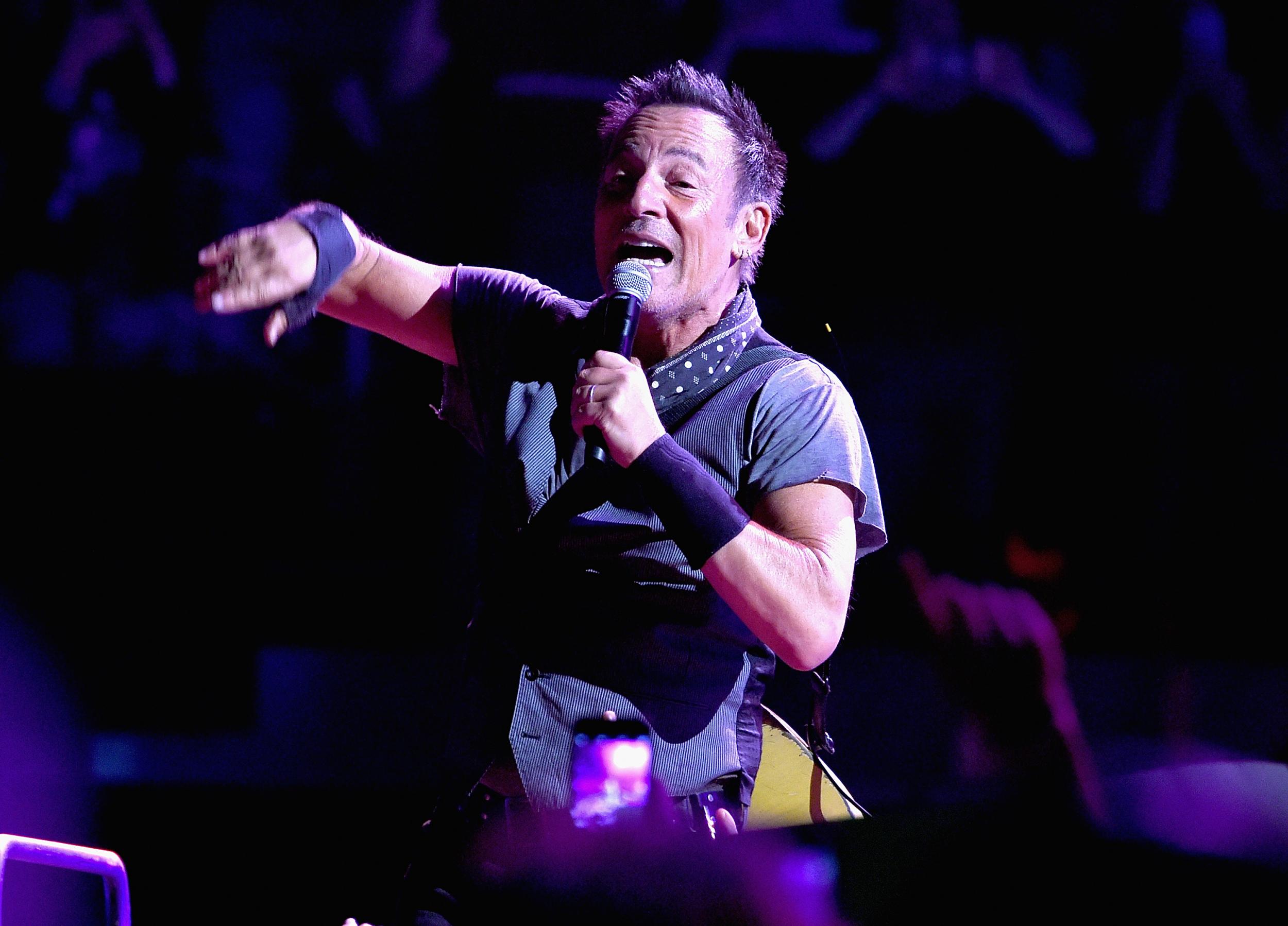You might not think Bruce Springsteen discussing his depression is a big deal – but I do
After suffering from my own depression, I had Springsteen’s words ‘It ain’t no sin to be glad you’re alive’ permanently inked onto my arm; words I thought were written just for me. Now I know they are just as important to ‘the boss’ himself

Your support helps us to tell the story
From reproductive rights to climate change to Big Tech, The Independent is on the ground when the story is developing. Whether it's investigating the financials of Elon Musk's pro-Trump PAC or producing our latest documentary, 'The A Word', which shines a light on the American women fighting for reproductive rights, we know how important it is to parse out the facts from the messaging.
At such a critical moment in US history, we need reporters on the ground. Your donation allows us to keep sending journalists to speak to both sides of the story.
The Independent is trusted by Americans across the entire political spectrum. And unlike many other quality news outlets, we choose not to lock Americans out of our reporting and analysis with paywalls. We believe quality journalism should be available to everyone, paid for by those who can afford it.
Your support makes all the difference.Bruce Springsteen, “the boss”, the machine, is an idol across the world.
His words tell our troubled stories. He gets us; his anger is our anger; his sorrow is our sorrow. The struggles he sings about give us hope and a way to navigate situations we felt no one else understood.
After suffering from my own depression, I had Springsteen’s words “It ain’t no sin to be glad you’re alive” permanently inked onto my arm; words I thought were written just for me. Now I know, are just as important to the man himself.
Recently, Bruce told us in song about the “crippling” torment he was facing, but none of us, including his own bandmates, stood back enough to realise.
Springsteen has now spoken publicly about his secret turmoil. The 66-year-old musician opened up about his depression, in his new book Born to Run. Speaking to Vanity Fair he said: “"One of the points I'm making in the book is that, whoever you've been and wherever you've been, it never leaves you…I always picture it as a car. All your selves are in it. And a new self can get in, but the old selves can't ever get out. The important thing is, who's got their hands on the wheel at any given moment?"
This is exactly what we need in order to address how we deal with mental illness. Bruce Springsteen might not be a God, but he’s the closest thing we are going to get to one – I’m not prepared to hear otherwise – and if he can be depressed at the age of 66, a man idolised by so many, with the energy to perform for hours at the highest level, then what more proof do you need to realise that any one of us can be affected at any given time in our lives.
It is impossible to tackle the stigma of mental illness until we normalise it, which can be done by sharing our own stories and swapping statistics for real life faces and voices.
Until we use our own experiences to give hope to others, until we address it fearlessly and head on by removing the barriers between us and them, then stigma will always exist.
Until we say, “I have suffered, I got through it and you can too”, then we will never truly progress. The truth is, people are scared to put their head above the parapet and understandably so.
With sensationalised stories of those suffering mental distress being commonplace there will always be a fear of being judged for being unwell. That fear continues to be fatal, as demonising headlines undo years and years of campaigning work within seconds.
The role of celebrities and pop stars such as Zayn Malik and Selena Gomez speaking publicly about their mental illnesses should not be understated.
There is hope that soon it won’t be considered a brave act to speak about being unwell, but make no mistake about it, these celebrities and role models are brave and their honesty will, without a doubt, save many. Seeing people you look up to admit to their vulnerability can help people accept their own issues.
The reality is, every single person in the world has mental health, just like we all have physical health. And just like with our physical health, our mental health can go up and down, it can suffer at any given time and we are all susceptible.
That should never be something to be ashamed of. You are never alone.
Join our commenting forum
Join thought-provoking conversations, follow other Independent readers and see their replies
Comments